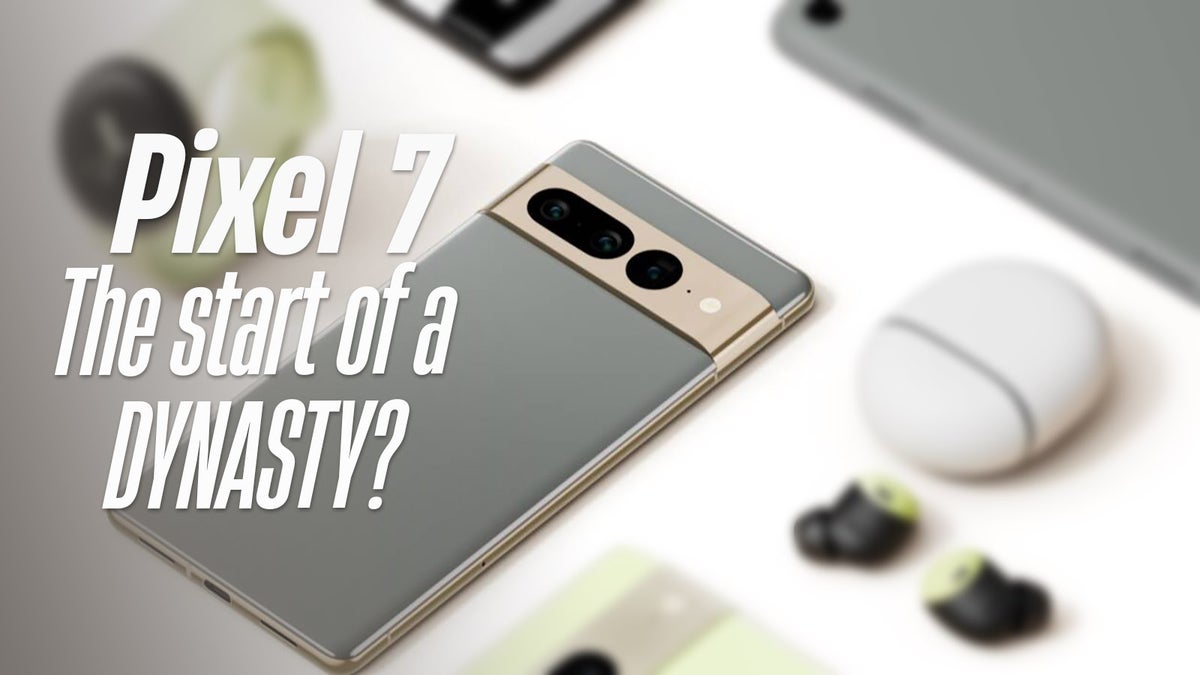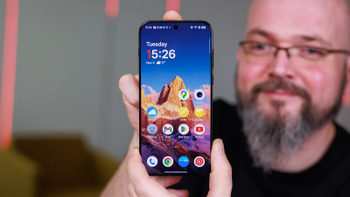The Pixel 7: all stars align for Google as it can finally take on iPhones and Galaxies
This article may contain personal views and opinion from the author.

The Pixel 6 launched with a brand new design, brand new chip, brand new camera sensor, and even the prices were brand new and undercut the competition! That was a lot of newness in one year, but lo and behold, Google mostly pulled it off! The Pixel 6 was and is great except for a few small kinks, and it has made a dent, but still it’s not quite the phone you find commonly on the street.
Step number one: Pixel marketing!
Having the Google Pixel as the official phone of the NBA went to great lengths popularizing the brand and making it a familiar, household name in the US, rather than a device only phone nerds knew about.
Every official NBA game highlight is “presented by Google Pixel”, and you can see the name on arenas in this years Playoffs, in Boston’s TD Garden, home of the Celtics, at the FTX Arena in Miami, at the Chase Center in San Francisco, home of the Warriors, and at the American Airlines Center in Dallas. In other words, all over the country!
It helps that this year’s NBA playoffs are incredibly contested and fun to watch too. Can this partnership keep on going for one more year? That would help the Pixel brand a lot!
Yes, Google, you made a good phone, but can you start a dynasty?
The early signs of success
And then you have the early signs of success already here: at Google I/O, the company revealed that the Pixel 6 is selling better than the previous two generations combined. Which might sound great, but let’s not forget that wasn’t a very high bar to clear in the first place. It is a good first sign, but still, it has not really changed the tide.
Canalys estimates that Google shipped 1.2 million phones in the US in the first quarter, but that is less than budget phone maker TCL, a name that you probably haven’t even heard of (all due respect to TCL, but we can’t blame you for that).
And yes, it’s a bit of an apples to oranges comparison since TCL phones are dirt cheap devices while Google is selling mostly flagship level smartphones.
It’s a shame that we don’t have any company reporting on just the top-end smartphones in the US, but we can probably safely assume that Google is in the top three since Lenovo and TCL are not really known for selling many high-end phones.
It takes time
But the one last piece of the success puzzle might just be time. It takes time to capitalize on that newly gained brand awareness!
Even looking back at the revolutionary original iPhone, its sales picked up gradually rather than exploding in the very first year. It took time, and some may argue that 15 years after that iconic launch Apple is still growing those sales, so that momentum spans over more than a decade!
That’s where Google has traditionally failed. In the past, Google never seemed to have the patience or the long-term planning for its phones.
Pixel and earlier Nexus phones were always a bit of an enthusiast thing, but not quite the main business. Devices seemed rushed. The small Pixel 4 was a battery disaster. The Pixel 5 was not even a proper flagship. Google crashed before trying to resurrect itself, and starting from scratch is always harder than accelerating from a slowdown.
The Pixel 7 promise
The Pixel 7 in this sense is a watershed moment. Google has to keep the momentum going. The Pixel 6 was all about new features, but some of them like the fingerprint scanner were lacking.
Google has to fix all those flaws at first, but also it has to navigate an increasingly complex supply chain that is stretched thin due to Covid restrictions in China.
It’s a delicate balance: you expect new features out of the Pixel 7, of course, but you also want refinement, and you also want a steady supply and a timely launch.
We would also argue that launching the Pixel 7 a bit earlier than the traditional late October release window would be very beneficial for sales.
No distractions
Finally, I am happy to see that Google did not announce a foldable phone at I/O. I have no inside knowledge whether it plans on making a foldable phone in the near future, but it's clear that a Google Pixel Fold would have been a huge distraction not just for the company, but also for possible Pixel 7 buyers.
Foldable phones are cool and I was first on the hype train back when the very first foldables launched, but the reality is that they remain a niche at the moment. We haven't seen mass adoption, the prices are often prohibitive, and the actual benefits clash with some very real concerns as those devices are hard to operate with one hand and often very heavy.
I think Google should keep a close eye on the segment, but right now, it needs to be laser focused on its Pixel 7 series and get them right before trying to sit on two chairs.
The upcoming Pixel Watch seems like a big enough distraction anyway, and the company even announced a tablet due in 2023, which shows big hardware ambition, but would further loosen the focus on the smartphones.
At the end of the day, I think that out of all companies, Google has the best chances or taking the Apple-Samsung duopoly, and I am keeping my fingers crossed for the Pixel 7. And as for me personally? Just give me a slightly smaller Pixel and I might just switch.
Follow us on Google News










![A new Android bug is making it impossible to install new apps. Are you affected? [UPDATE]](https://m-cdn.phonearena.com/images/article/176703-wide-two_350/A-new-Android-bug-is-making-it-impossible-to-install-new-apps.-Are-you-affected-UPDATE.webp)

Things that are NOT allowed:
To help keep our community safe and free from spam, we apply temporary limits to newly created accounts: